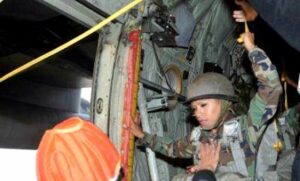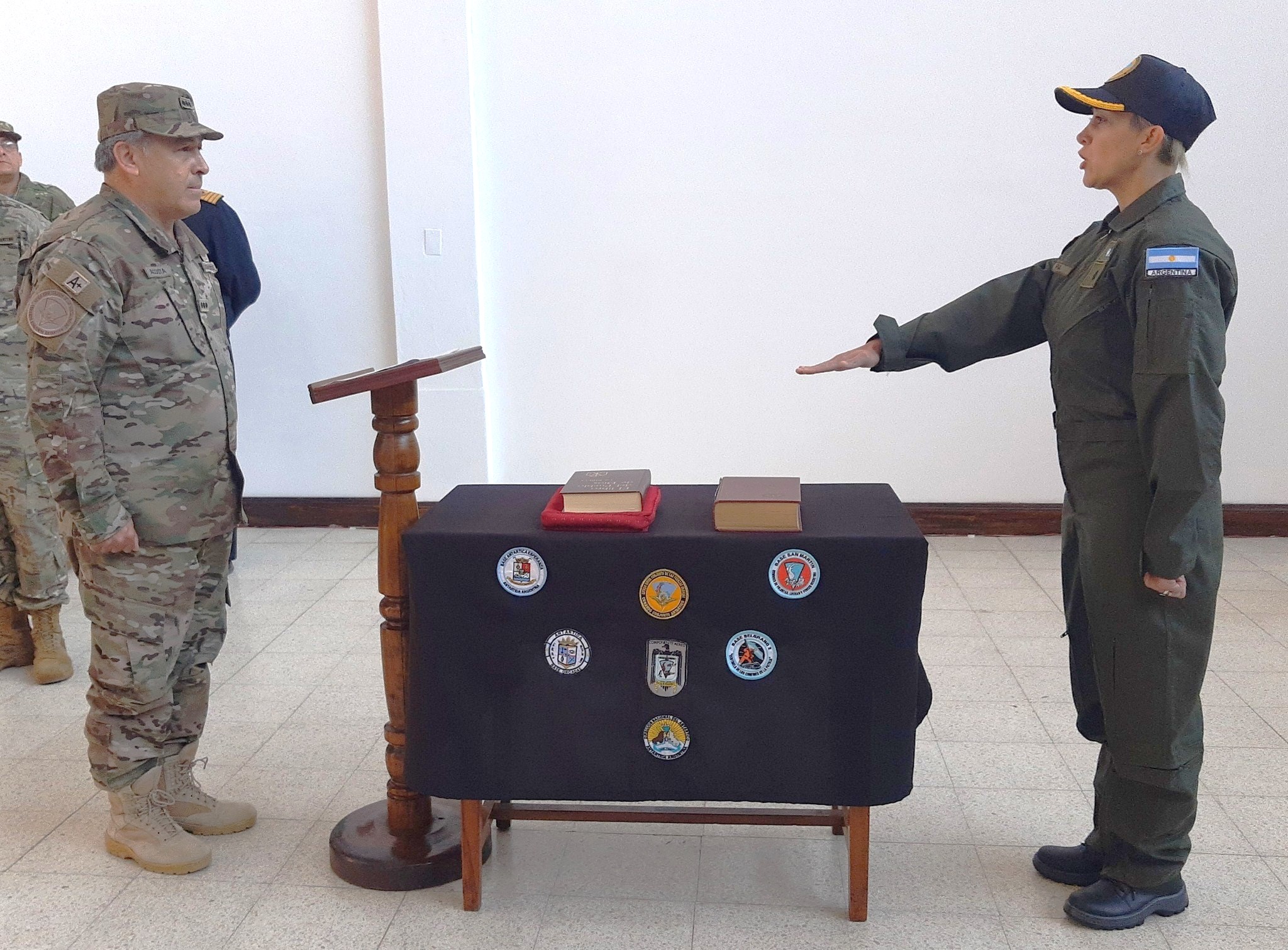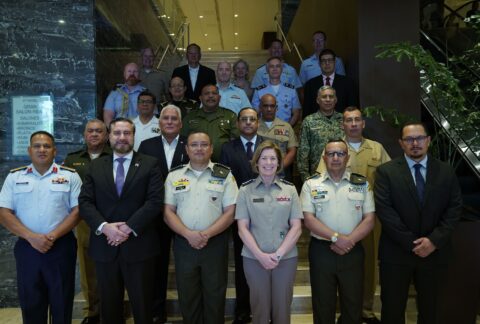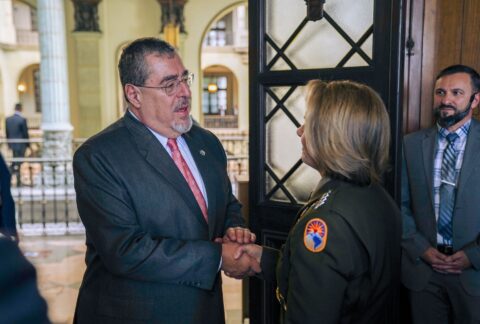The appointment of Argentine Army Major Vanesa Pía as head of the Carlini Base, one of the South American country’s six permanent bases in Antarctica, once again highlights the commitment of the Argentine Armed Forces to gender integration. Maj. Pía is the first military woman to command a unit on the white continent.
“A command post for an officer is a major milestone. Commanding an Antarctic base is a particular challenge, being in charge of a crew where there is isolation, stress, and limited comfort,” Maj. Pía told Diálogo on January 7. “I am proud to have been chosen and to have the responsibility of fulfilling this mission.”
The presence of women on the white continent is not new, as they have been participating for many years in scientific and military activities and at the head of services such as nursing or healthcare, the Argentine Defense Ministry indicated.

“The importance of my leadership at the Carlini Base is the opportunity to have the same obligations as a male officer; it’s an enormous responsibility because I will have people under my command who will depend on my leadership,” Maj. Pía said. “Argentina has had a presence in the Antarctic territory for 118 years and this is the first time that a woman is at the command of a permanent base.”
Maj. Pía will have 90 military and civilian personnel under her command during the summer season, and 25 for the rest of 2023.
On Esperanza Base, another year-round Argentine research station in the Antarctic, Argentine Army Specialist Rosario Chauqui is yet another groundbreaking woman: Since January 1, she is the first woman in the history of the Antarctic territory to drive all types of vehicles.
“I am the first woman road machine operator in Antarctica, in addition to driving other vehicles such as vans and snowmobiles,” Spc. Chauqui told Diálogo on January 5. “It’s satisfying due to the efforts [I put into] my military career to have this responsibility of providing logistics support, working in an extreme climate, and checking security measures.”
In 1995, the voluntary military service in Argentina boosted the incorporation of female soldiers in all branches. As such, by 2000, women officers and noncommissioned officers in artillery, engineering, and communications, and in the quartermaster and arsenal specialties, were already serving in the ranks of the Argentine Army. Finally, in 2012, women had access to infantry and cavalry.
“For several years now, we women have held the same positions as men. We have all ranks and specialties, and we know how to carry out our duties with the integrity and commitment that our institution requires,” Argentine Navy Captain Emilia Galván, head of the Gender Department of the Navy’s Personnel and Welfare General Directorate, told Diálogo. “We don’t have any limitations in terms of access and/or promotion.”
Currently in the Argentine Armed Forces there are women pilots, ship commanders, troop leaders, and many more with high ranking positions.
“I believe that for the Armed Forces to have women commanders is a source of pride, because as a country it places us in a privileged position in terms of equal opportunities and rights for our citizens. We are a model country in that sense,” Capt. Galván added.
For the Argentine Defense Ministry, the gender perspective is a vital tool to successfully lead military institutions, guaranteeing the well-being of their members, as well as military cohesion and discipline.
“We women within the force advocate leaving behind women being identified ‘as women’ and we aim, like men, to be identified exclusively due to our capabilities and our achievements. In that sense it’s an honor for any of us to have a female commander, regardless of her gender,” Capt. Galván concluded.









